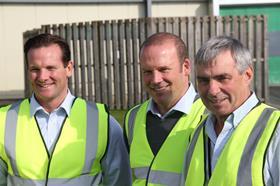
Tesco’s commercial director for fresh produce has hinted that fruit and veg prices may rise at the supermarket as the cost of imports rise and the retail market enters an inflationary cycle.
Commenting on whether he could foresee a struggle between retailers and suppliers over price, following Unilever’s ‘Marmite War’ with Tesco, Matt Simister told FPJ: “The reality is that agricultural products go up and down in price and you have to pay the price that the market sets.
“What we seek to do is to manage the end-to-end supply chains better than anybody else and that allows us to be more competitive. What you can’t do is buck a market unless you’ve actually risk-managed that market better than other people, which we also try to do.'
He added: “Some of the underlying costs have been increasing already and are likely to continue increasing. Our job as retailers is to try and shield consumers from as much of that as possible whilst working in partnership with suppliers.”
In an effort to avoid price rises, Tesco is trying to streamline some of its supply chains by removing transactional costs, cutting out third parties and making them more efficient.
Last week saw the official launch of a prep factory expansion at Tesco’s primary potato supplier Branston. The producer’s new peeling equipment will allow it to peel its “wonky” potatoes and send them direct to convenience food producer Samworth Brothers to turn them into mashed potato for ready meals. Previously, the surplus potatoes had been sent to third parties for processing.
“This model is one of the first that does that,' said Simister. 'We’re germinating loads of them across different sectors at Tesco and this is one of the first ones that is coming to fruition.”
Simister hopes that simplified supply arrangements like these will help allow Tesco to stick to its current contracts with growers and keep down prices for its customers.
As retail enters a period of price inflation, Tesco’s aim, he said, is to minimise transactional costs and “wasted activity costs” so the retailer can be more efficient than its competitors.
For a full analysis of post-Brexit produce prices see the next issue of FPJ, out 21 October.



